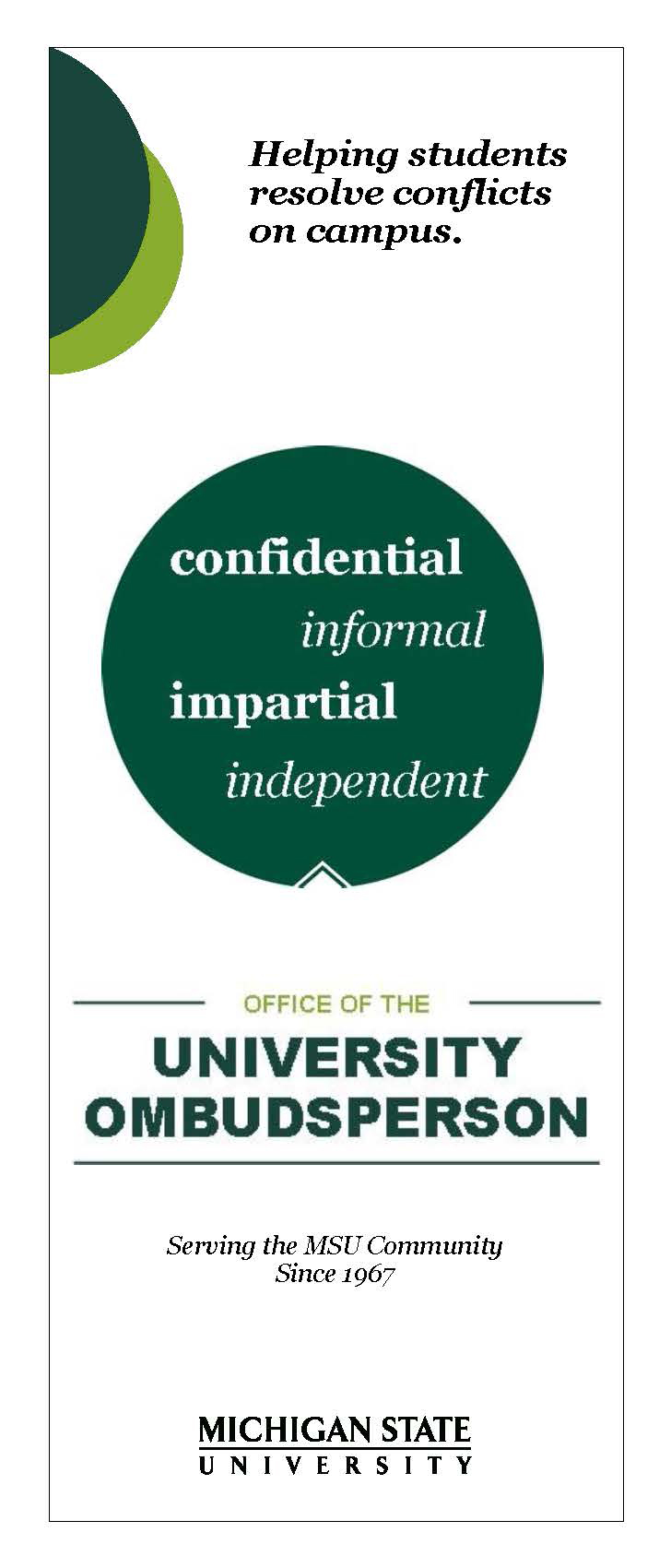Services
The Office of the University Ombudsperson
Services
Common Issues / Concerns

Korean Translation
Mandarin Translation
Spanish Translation
- Violations of university policy;
- Discrimination and harassment;
- Communication problems;
- Academic policies or disputes;
- Health and safety issues;
- Red tape in university procedures;
- Disciplinary actions;
- Misunderstandings;
- Appropriate ways to frame and discuss issues;
- Ways to make or seek an apology;
- Untangling a complicated situation;
- Threats or retaliation;
- Academic Freedom/Academic Integrity;
- Ethical behavior;
- Accessing other university resources;
- Formal processes for resolving issues;
- Student rights and responsibilities;
- Other campus concerns
The Ombudsperson will:
- listen and help to analyze the problem or complaint;
- identify and explain relevant university policies and procedures;
- help to define and evaluate options;
- help to resolve problems informally and expeditiously;
- make inquiries into a problem, complaint, or concern;
- initiate discussions with other involved parties (with appropriate consent);
- help develop problem solving skills and promote critical thinking so individuals will be better able to act on their own behalf in resolving conflicts.;
- assist in outlining a plan of action to resolve conflict(s) and/or guide adherence to University policy and protocol;
- make referrals to other campus and community resources; and
- recommend changes in University policies or procedures that may be outdated, ineffectual or arbitrary.;
- support individuals by connecting them with internal and external resources to foster a helping network;
- provide a safe and neutral setting where individuals feel respected and where they can be candid and forthright
The Ombudsperson will NOT:
- does not act as an advocate in a dispute. The Ombudsperson is neutral and impartial.;
- does not compel participation. The use of the Ombudsperson is voluntary.;
- does not represent individuals in appeals or formal grievance procedures either on campus or off campus;
- does not provide legal representation or give legal advice;
- does not get involved with non-University related problems or complaints;
- does not overturn binding decisions, but can investigate procedural fairness;
- does not serve as an office of record. Speaking with the Ombudsperson is not "notice to the University" of problems or policy violations. Often persons will seek advice from the Ombudsperson privately, before deciding what actions to take in response to a problem. If you want the University to "be on notice," that is, formally to know about a particular problem and formally respond, the Ombudsperson can help you identify which office to contact.;
- does not keep formal written records. The Ombudsperson can help you determine how to keep your own records, if you need to do that.

